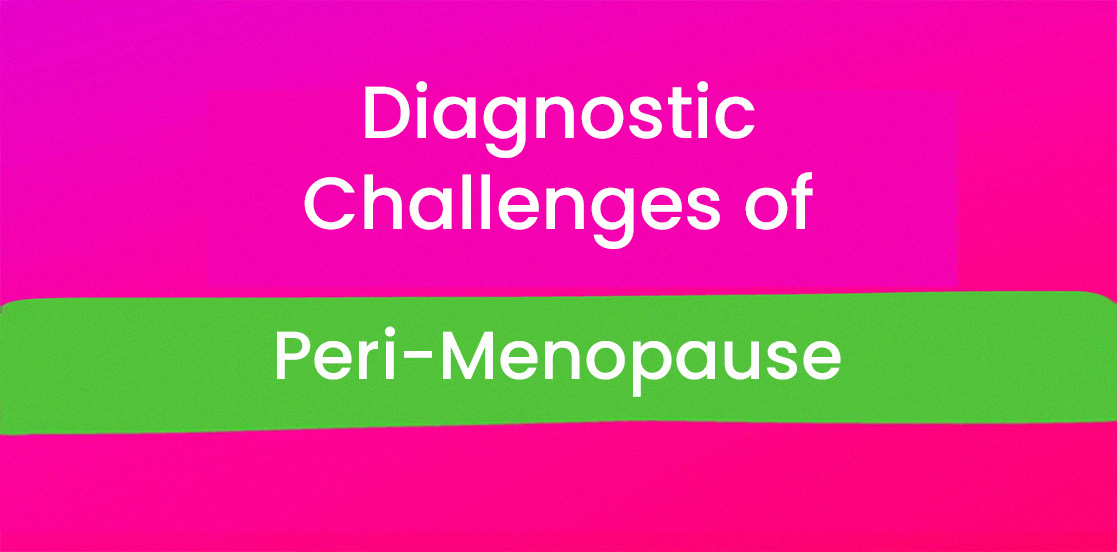Post link copied to clipboard!

Diagnosing perimenopause can be challenging due to the highly individualised nature of the transition to menopause and the overlap of symptoms with other medical conditions. Some of the challenges include:
Perimenopause symptoms can vary greatly from woman to woman, making it difficult to identify a common set of diagnostic criteria. Symptoms may include irregular menstrual cycles, hot flashes, night sweats, sleep disturbances, mood changes, vaginal dryness, and decreased libido.
Perimenopause typically occurs between the ages of 45 and 55, but it can begin as early as the mid-30s or as late as the early 60s. This wide age range can complicate the diagnostic process.
Many perimenopause symptoms can also be indicative of other medical conditions, such as thyroid disorders, hormonal imbalances, or chronic fatigue syndrome. This can lead to misdiagnosis or delays in treatment.
Hormone levels can fluctuate greatly during perimenopause, making it challenging to rely on blood tests for diagnosis. Estrogen and follicle-stimulating hormone (FSH) levels can vary from day to day or even within the same day.
There is no universally accepted set of diagnostic criteria for perimenopause, which can lead to inconsistent diagnoses among healthcare professionals.
Many symptoms of perimenopause are subjective, such as mood changes and sleep disturbances. This can make it difficult for healthcare providers to accurately assess the presence and severity of perimenopausal symptoms.
Women from different cultural backgrounds may have different expectations and experiences of perimenopause, which can affect the reporting and interpretation of symptoms.
Because perimenopause is a natural life stage rather than a disease, some healthcare professionals may overlook or minimize its impact on a woman's quality of life, leading to underdiagnosis or misdiagnosis.
To overcome these challenges, healthcare providers often rely on a combination of clinical history, physical examination, and laboratory tests to diagnose perimenopause. Patient education and open communication are also essential in helping women understand and manage this complex life transition.